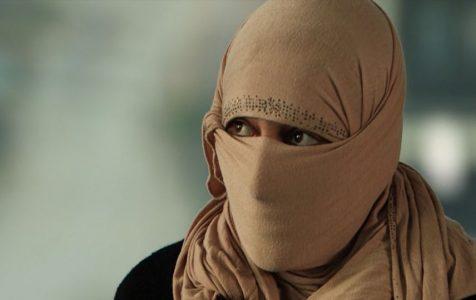
Forced to deliver babies for ISIS midwife shared moments tender, cruel and grotesque
Samira al-Nasr has delivered thousands of babies over four decades as a midwife in the city of Raqqa, but she says nothing was like the childbirth she attended two years ago as the handpicked doula of the Islamic State.
Moments after an infant was born to a Turkish couple — an ISIS fighter and his young wife – they tried to dress their newborn son in a custom-tailored military uniform. The father proudly declared that the child would grow up to become an Islamist militant. Nasr was revolted. She said she persuaded the father not to use the uniform, telling him the material was too coarse for the baby’s delicate skin.
Nasr, 66, is among the millions who lived under ISIS ‘s violent and austere rule in Syria and Iraq, but she witnessed a side of the militancy that perhaps no other outsider did. She was coerced, she said, into delivering countless babies for Islamic State families, attending the most intimate moments of their secluded lives, which she described as alternately ordinary and grotesque.
Entrusted by the Islamic State with delivering the “cubs of the caliphate” shortly after it captured Raqqa in 2014 and made the city its capital, Nasr began making house calls at all hours. During the three years she was shuttled by taxis and gunmen to the homes of Islamic State families, most of them foreign, Nasr’s emotions ran from fear to anger to helplessness, she said. There was none of the joy or pride that had sustained a career of delivering babies for a generation of Raqqans.
“They had no respect for the profession,” she said of the militants and their wives. “I was like a prop, not a caregiver. I would attend the birth and they would toss me out.”
The children of the “caliphate” were themselves treated as props. They were central characters in ISIS propaganda videos, which often showed children of diverse European, Asian and African backgrounds studying ISIS teachings, or playing and training with weapons. Other videos purported to show adolescent boys executing people deemed apostates or enemies.
In their private interactions, Nasr also found the Islamic State parents often to be cruel, but sometimes tender.
The young women were mostly elated upon becoming mothers, and in a practice that seemed ignorant to Nasr but is actually increasingly common in the West, they all insisted on holding the newborns tight and breast-feeding them even before the umbilical cord was cut. The women would frequently whisper a few words of prayer in halting Arabic exalting the role of mothers in Islam while pressing the infants to their chests.
But the husbands imposed harsh rules. They forbade Nasr to give the women painkillers or other medicine while they were in labor. She said some of the women went through 10 hours of labor without the opioids or muscle relaxers that Nasr had routinely given to women in the past.
“They wouldn’t let me give her a thing,” she recalled. “These women endured a lot of pain.”
The husbands claimed that the medication violated their religious tradition and offered platitudes about how the women would reap greater rewards from God for their suffering. The wives obediently agreed.
But Nasr said she knew better. The men were concocting these excuses because they feared she might poison the women, and she felt sorry for them.
Source: Stripes





